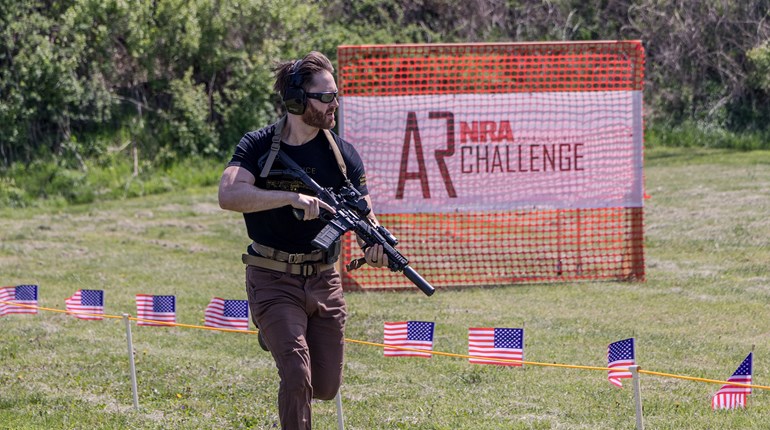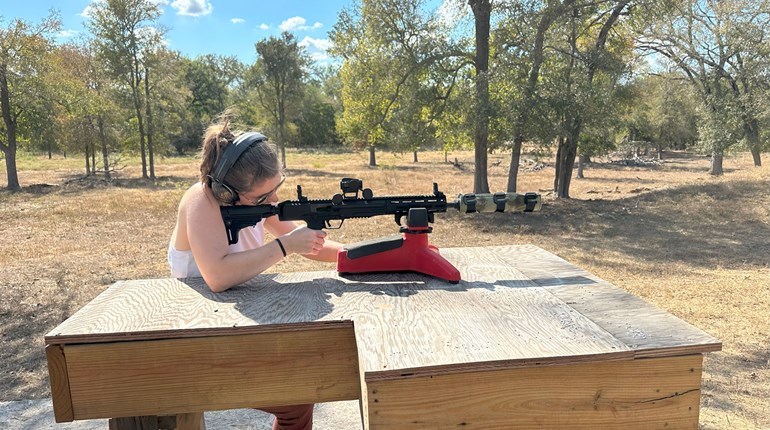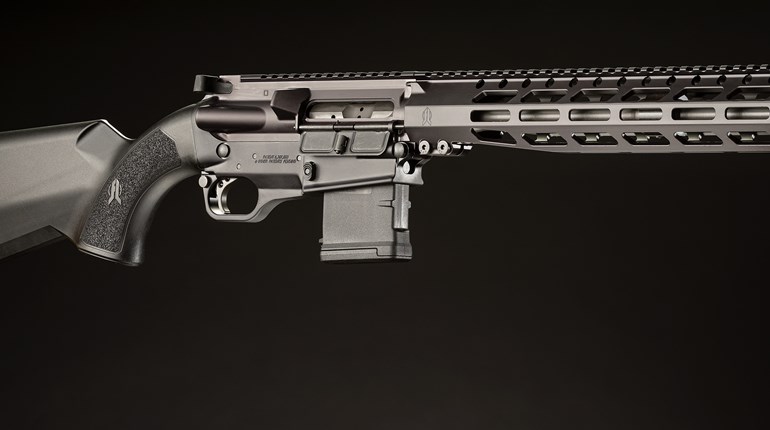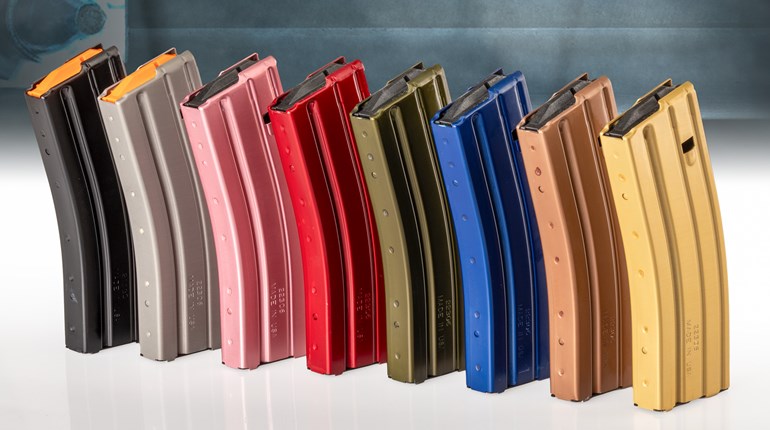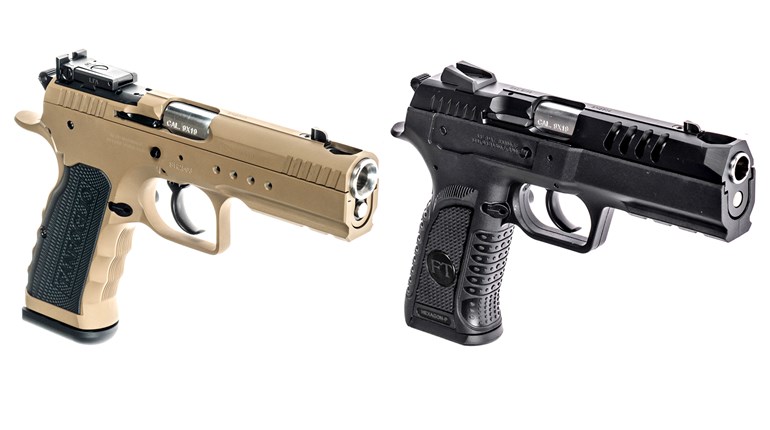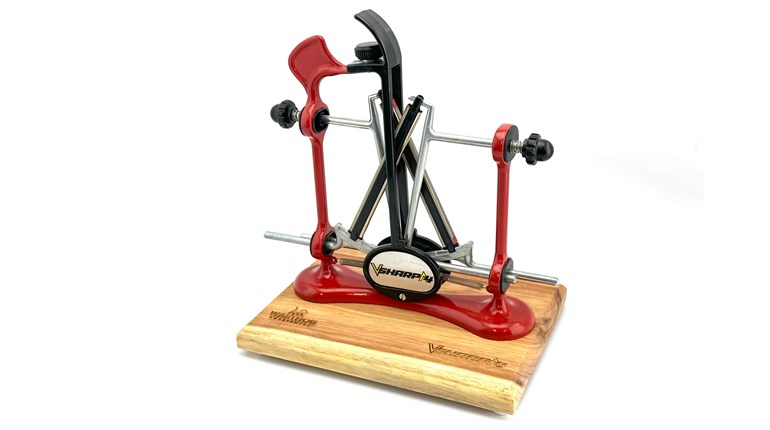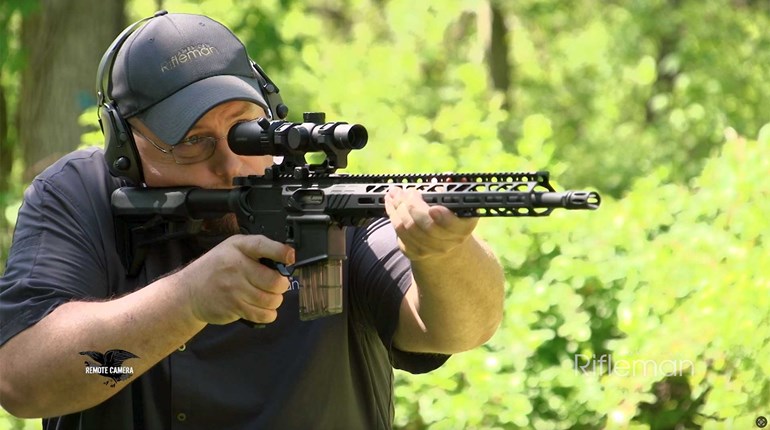
Though the Great AR Rush has faded, many of those who purchased a tactical rifle (or several) are probably wondering what to do with them now. Of course, some will use their recent purchases for hunting, while others will turn to the addictive sport of competitive shooting, particularly the explodingly popular 3-gun. Still others, especially those in rural areas, may depend on a tactical rifle for ranch or home defense. One thing all of these shooters will have in common with the weekend hobbyist is a desire to modify their black guns. The modular AR platform practically begs for it.
Spun off from and inspired by the makers of military gear, the segment producing parts and accessories for AR-15-style tactical rifles has become a major force in the firearm industry. Everything from inexpensive tactical-looking gadgets to genuine military-issue parts and accessories are available, and most of it can be added or installed at home by any gun owner.
Thanks to the genius that is the Picatinny rail, many accessories can easily be bolted on to the gun without special tools, but some gear or replacement parts, while designed to be field-serviceable, are more easily installed using specially designed AR tools. As is usually the case, when you don't have the proper tool, a 10-minute task can easily turn into a profanity-ridden hour of agony. At least that's been my experience when I've worked on cars, household appliances or my firearms. My guess is you've had at least a few similar experiences.
When the right tool for the job is available, however, 10-minute job suddenly takes…10 minutes. With that in mind, here are three of the most useful AR tools for home use.
Carbine Stock Wrench
This tool comes in handy when an AR carbine owner wants to swap buttstocks on his black rifle. In some cases, this is a simple matter of pulling off the factory buttstock and sliding the new one on, no tools required. But it is often not this simple.
Though they appear identical to the naked eye, there are two different sizes of buffer tubes for carbine adjustable stocks: mil-spec and civilian. Buttstocks designed for one will not fit properly on the other, and many of the coolest buttstocks may not be available for civilian-sized tubes. Most civilian guns will, of course, come with the civilian buffer tube, even many of those advertised as being up to mil-spec standards. I learned this the hard way when I discovered my fancy new stock didn't quite fit onto my supposedly mil-spec carbine. The tube, unfortunately, was civilian, and though changing buffer tubes isn't difficult, it takes more than a crescent wrench. So, it was time to invest in a carbine stock wrench.
These tools are purpose-built to fit the castle nut that holds the buffer tube in place, and in typically utilitarian military style, the wrench is multi-functional: It not only loosens buttstock castle nuts, but also tightens them. It's like buying one tool and getting another for free.
There are a wide variety of carbine stock wrenches out there, and all of them are better for this job than a vise grip or a pair of channel-lock pliers (don't ask me how I know that). They are the right shape to fit snugly around the buffer tube and have teeth that lock solidly into the slots on the castle nut. This allows you to put your strength into loosening the nut, which should be quite tight, and lets you muscle the nut on the new tube equally tight for reliability in the field.
When looking at stock wrenches, three things to keep in mind are the number of teeth for engaging the castle nut (more is better), the thickness of the wrench itself for solid contact and a sturdy grip and the length of the wrench's handle for better leverage.
A particularly good choice is the CAR-15/M4 Buttstock Wrench from Brownells. It features a thick body and teeth to engage all four cuts in the extension nut. It also includes a square drive hole to attach a breaker bar or torque wrench. Most other carbine stock tools only engage one or two extension nut cuts, though they're usually a little less expensive.
Handguard Removal Tool
As noted above, the Picatinny rail system has made accessorization of an AR-15-style rifle a piece of cake, and the most common location for rail-mounted accessories such as lights, lasers and forward grips is the rifle's fore-end. Standard handguards can have rails mounted or can be quickly and easily swapped out for an all-rail platform. Quickly, that is, if you've got four strong hands and plenty of leverage to simultaneously hold the rifle, pull back and hold the delta ring and remove or re-install the two-piece handguards. It can be done, and I've found loudly swearing while doing so helps immensely. If you're looking for more family-friendly alternatives, a handguard removal tool is a cheap and straightforward way to get things done with 90-percent less profanity.
This simple device looks a bit weird, but simply hooks into the rifle's magazine well and allows one person to pull back and hold the delta ring with one hand, leaving the other free to remove or install handguards. They're inexpensive, and if you're going to remove your handguards more than twice over the life of your rifle, they're well worth it. I picked mine up for practically nothing at a gun show years ago, but I'd recommend getting one with rubber coating to protect your gun's finish. If you've got one without coating, duct tape can be wrapped around it to prevent scratching the black off of your rifle. A…friend…told me that.
Front-Sight Bench Block
In a write-up of the Adams Arms AR-15 Piston Conversion Kit, I mentioned I had a bit of a "hiccup" getting the factory-installed front-sight tower/gas block off of my barrel. Hiccup is a bit of an understatement, and my own solution involved a 2x4 wedged under a washing machine for leverage, a heavy hammer and a smashed thumb, plus a generous amount of blue language.
Removal of the front-sight tower allows its replacement with a low profile gas block incorporating rails for flip-up sights, sling attachments and the like. If you're going to do this, I recommend the Brownells AR-15 Front Sight Bench Block. This polyethylene block gives the front of your gun the support it needs while you hammer away and is fitted for the tower and pins. Though many replacement gas blocks simply bolt on to the barrel, if you're going to re-install a standard front sight or another pin-retained block, this bench block flips over for driving the pins back in from the other side.
Learn from my mistakes. Make sure to get the right tools before heading down to modify your black rifle. These three are great ones to start with.












